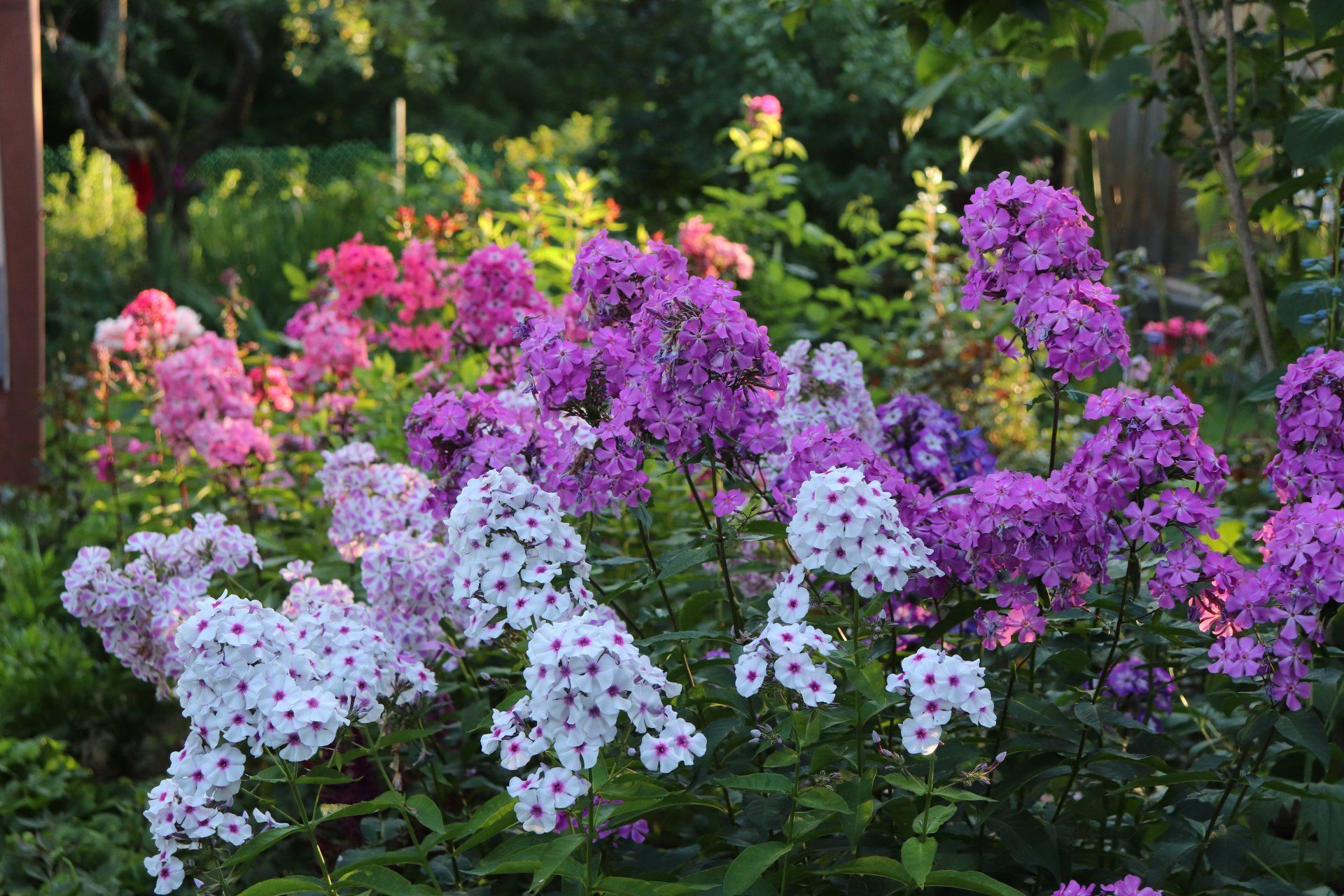Phlox
KEY INFORMATION
Height: to 45cm
Spread: to 45cm
Half-hardy annual
Full sun
Germination: 10 - 21 days
VARIETIES AVAILABLE FROM COLLIE FLOWERS
Grandiflora Tall Mix
Sugar Stars
Cafe Au Lait
SOWING & GROWING SCHEDULE
Sow Indoors: February to May
Sow Outdoors: n/a
Plant Out: May to June
Blooms: June to September

Growing Guide
Sow annual phlox from late winter to late spring on the surface of a good seed compost and gently firm down. Do not cover the seed. Place the seed tray in a propagator or seal it inside a polythene bag, keeping the soil damp but not wet. Do not exclude light as this aids germination. Most growing advice for Phlox will stipulate putting it somewhere dark to germinate, Collie Flowers and many of our customers now do not follow this advice and have Phlox growing reliably each year.
When seedlings are large enough to handle, transplant and grow them on in cooler conditions until large enough to plant outdoors. When plants are well grown and all risk of frost has passed, acclimatise them to outdoor conditions over 7 to 10 days. Transplant outdoors in full sun on moist, fertile, well drained soil at a distance of 30cm apart, or into containers of peat free compose.
Feed and water phlox plants frequently throughout the summer. Deadhead faded phlox flowers to promote more blooms and extend the flowering period.
TOP TIPS
Phlox are herbaceous plants that bear a profusion of small, often scented flowers in summer. They range from tall border perennials to creeping phlox or alpine varieties and woodland types, as well as annual varieties that can be grown as bedding. Annuals are the varieties we focus on at Collie Flowers and have available in our range of seeds. Years of breeding have resulted in shorter, more garden-worthy cultivars that flower in a variety of different colours, including shades of blue, purple, pink, magenta, red and white. As well as being fragrant and long-flowering, most cultivars attract a variety of bees and other pollinating insects.
Phlox don't like drought – you may notice the foliage wilting in dry weather. Your plant should perk up after it has been watered. In hot weather, water in the morning, making sure plenty of water reaches the roots.
Powdery mildew can be a problem in hot, humid weather, especially if your plant is growing in partial shade. If this tends to be a problem in your garden, improve air circulation by thinning the plants in early spring.
